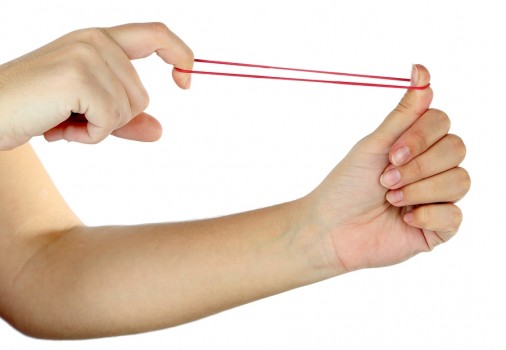In Professor Carol Dweck’s book Mindset: The New Psychology of Success, a growth mindset is described as a desire to always be learning and becoming better, as opposed to a fixed mindset in which you expect you are either smart or good at something and there’s nothing one can do if you’re not a “natural.”
When you have a fixed mindset you want to:
- Look smart which means you avoid challenges and avoid the possibility of failure.
- You easily get defensive and give up.
- You see effort and hard work as fruitless and not worth it.
- You don’t listen to criticism because it makes you feel vulnerable and you ignore even useful or positive feedback.
- When others have success, you feel threatened and envious.
- As a result, you give up too early, plateau and never reach your potential.
With a growth mindset you always have a desire to learn and grow, so you tend to:
- Embrace challenges
- Persist in the face of setbacks
- See effort and hard work as a necessary path to mastery
- Learn from criticism and often seek out others’ opinions
- Find lessons and inspiration in the success of others
When you adopt a growth mindset you reach ever higher levels of achievement. You’re not afraid of risks because they’re part of the learning and growing process. So it makes sense to switch to a growth mindset, right?
Now this is all good stuff, and I wholeheartedly agree with author Dweck. But when I think about it, I fall back into suspecting that some people are just naturally growth-minded, and others aren’t. (Which I’ve immediately identified as a fixed mindset, how ironic!)
Dweck says anyone can change their mindset and switch to a growth attitude. Okay, but isn’t that hard to do? As much as I really do believe that I can become smarter at my age and a better golfer and a more successful speaker, I’m not going to bet my lunch money by the end of next week.
It’s not easy to replace a fixed mindset with a growth mindset that tells you to embrace all things that have felt threatening:
- Challenge
- Struggle
- Criticism
- Setbacks
When you first become aware of the two different mindsets, you can’t help but feel like thumping your forehead: Of course! That’s all I need to do, right?
So I started catching myself each time I said something other than growth-oriented. I became acutely aware of how unsettled I felt. At the end of the day, I usually review what’s done and undone, and my inner voice isn’t always non-judgmental. I’m mired in old habits.
I’m still experimenting with this growth mindset thing. I’ve taken up wearing a rubber band and giving myself a whack whenever I catch myself slipping into the wrong mindset. I’m banking on the axiom that “the first step toward change is awareness!”
What about you? How good are you at observing your own mindset? I’d love to hear from you, contact me here and let’s talk!

Did You Enjoy This Article?
Join thousands of other smart business owners like yourself & get our Proffittable Times newsletter.
It's filled with actionable content you can apply immediately.
Sign up now to get started!
– Coach Nancy










